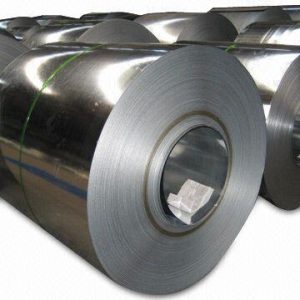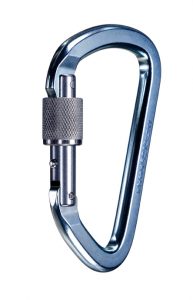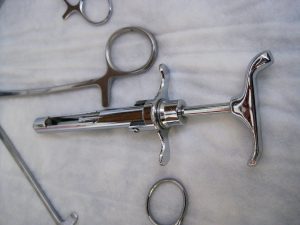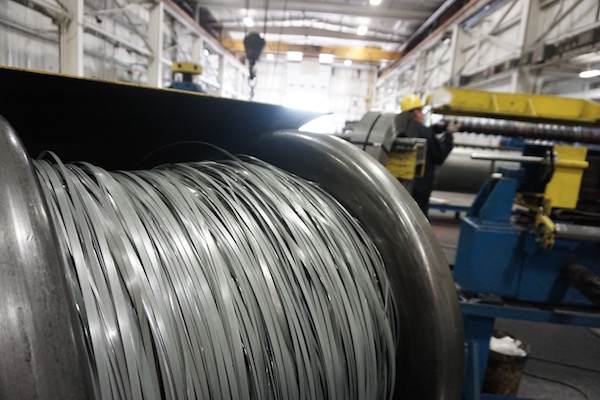Hascall Steel Company previously published a blog on the mechanical properties of steel. This time we want to share about the chemical properties of steel which influence the mechanical properties.
When we think about steel, those of us who are not very familiar with the chemical components of steel may speak and think of it as being synonymous with iron. We think of iron as the strong and sturdy material that ships and tanks are made of. In reality, iron by itself as a pure component is a completely separate element altogether. When iron and other elements/alloys are combined in the furnace, different types and grades of steel are created. The combination is what is typically thought of as “solid steel”.
There are about 5-12 different components of alloy that are added in combination with iron to make these different types of steel. The most common of these components are carbon, manganese, phosphorus, silicon, and sulfur. The main reason why alloys are added with to iron is because iron reacts negatively with oxygen causing the process of corrosion, creating rust. The alloys are added to combat this corrosive process and change the chemical composition to be used as a solid material for industrial purposes.
Types of Steel
Understanding that steel is always the combination of iron and some other sort of alloy (making up an iron alloy), these additional components are also added to alter the physical properties of the final material. The design process of these different types of steels are completed by materials scientists. These experts perform their job under very exacting conditions. Getting the conditions perfect for the creation of certain steels is essential for obtaining the needed mechanical conditions for particular Rockwell levels as well as other subtle mechanical qualities.
The “steels” that these metallurgists create fall into four main categories or groups: carbon, alloy, tool, and stainless. Now there are literally thousands of different types of steels, but they generally fall into one of these four categories.
Carbon Steel
After iron, there are about 5 to 12 components added in the creation of steel,  chemically forming it into one of the four categories. Carbon is the main component added after iron, making carbon steel the largest category of steel. Around 80-90% of steel formed falls into the carbon steel category. Depending on the
chemically forming it into one of the four categories. Carbon is the main component added after iron, making carbon steel the largest category of steel. Around 80-90% of steel formed falls into the carbon steel category. Depending on the
amount of carbon added to the steel formation process, the mechanical properties will change dramatically. If around 1% is added to the composition, the steel is then considered to be a basic grade of carbon steel. If around 1-2% is added, the composition is considered to be high-carbon steel which tend to be harder, and if less than 1% is added the steel will be considered as low-carbon and is much softer with easier shapeability.
Alloy Steel
Alloy steels (like carbon steels) contain both carbon and iron, but add additional elements such as silicon, nickel, chromium, manganese, or vanadium. The extra elements added are what provide the additional features and varied chemical properties compared to carbon steels. With alloy steels, the components are generally considered to be stronger, and considerably more durable than carbon steels.
Tool Steel
Similar to alloy steel is the category of tool steels. These are much harder than alloy steels and are made from carbon and iron with added elements like nickel, tungsten, or molybdenum which give them a harder characteristic and a resistance to wear and tear. These steels are additionally toughened by being heated to an extremely high temperature directly followed by being cooled, and heated again at a lower temperature. This process of heating, cooling, and heating is what’s known as tempering.
Stainless Steel
Stainless steel is what you would come across most often in everyday life. From household items such as scissors or utensils, stainless steel is also used to make many of the medical instruments in hospitals. Containing high amounts of chromium and nickel, stainless steel is extremely resistant to corrosion and  other chemical reactions earning it the name “stainless”. It’s easy to sterilize and clean as well as polish.
other chemical reactions earning it the name “stainless”. It’s easy to sterilize and clean as well as polish.
Understanding all of these variations and nuances of steel is what allows Hascall Steel Company to specifically order the right combination to meet our customer’s needs. We make use of our state-of-the art testing labs on site to determine the exact chemical and mechanical properties of our steel. Determining the strength, ductility, and weldability of these steels is a top priority for us, so we can better deliver to you, the customer, the exact grade and specification required for your manufacturing process.

